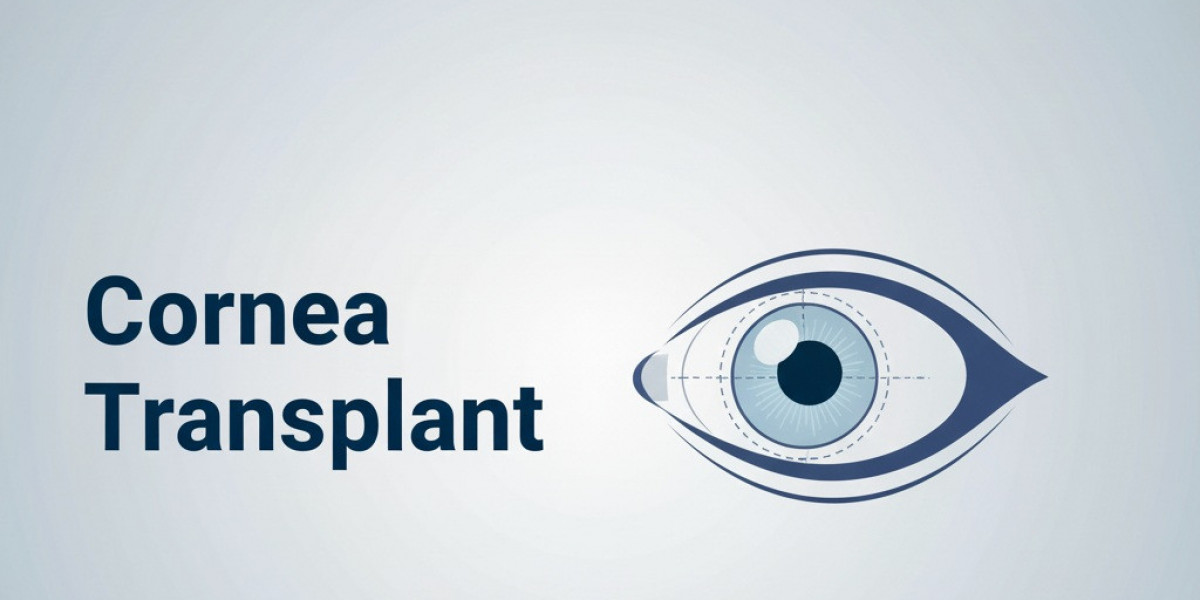Eyes are among the most precious organs of the body, and when the cornea—the clear, dome-shaped surface at the front of the eye—gets damaged, vision may be blurred or lost. For many, a Cornea Transplant becomes the hope for restored sight. This delicate surgery is not for everyone, and eligibility depends on medical, lifestyle, and eye health factors. Understanding these can help patients and families make informed decisions.
Understanding the Purpose of Cornea Transplant
A cornea that is scarred, swollen, or misshaped cannot properly focus light, leading to poor vision. In such cases, medications and non-surgical treatments may not be enough. A Cornea Transplant replaces the damaged cornea with healthy donor tissue, offering a chance to regain clarity. Not everyone with corneal issues needs surgery, but for those who do, it can be life-changing.
Common Conditions That May Require Surgery
Several eye conditions can damage the cornea to a point where surgery is the best option. These include:
Keratoconus: A condition where the cornea thins and bulges outward like a cone.
Corneal Scarring: Resulting from infections, injuries, or previous surgeries.
Fuchs’ Dystrophy: A disease that causes corneal swelling and vision clouding.
Corneal Ulcers: Untreated infections that leave deep marks on the surface.
Failed Previous Cornea Transplant: When an earlier graft no longer works.
Patients with these conditions are more likely to be recommended for surgery after a thorough evaluation.
Key Factors in Patient Eligibility
Not every patient is automatically considered fit for a Cornea Transplant. Doctors carefully weigh the following:
Overall Eye Health: Conditions like glaucoma or retinal damage may reduce transplant success.
General Health Status: Uncontrolled diabetes, autoimmune diseases, or poor immunity can affect healing.
Severity of Corneal Damage: Mild cases may be managed with glasses or contact lenses before surgery is considered.
Age and Lifestyle: Younger patients with progressive conditions may benefit more, while older patients need careful risk assessment.
Commitment to Aftercare: Patients must be ready for follow-up visits, medications, and lifestyle adjustments after surgery.
Diagnostic Tests Before Eligibility Confirmation
Before recommending surgery, specialists conduct detailed eye health checkups. These may include:
Corneal Topography: Mapping the cornea’s surface shape.
Specular Microscopy: Checking the health of corneal endothelial cells.
Pachymetry: Measuring corneal thickness.
Visual Acuity Tests: Determining how much vision is affected.
These tests help doctors decide whether the patient is ready for a Cornea Transplant and what type of procedure is most suitable.
Types of Cornea Transplant Based on Eligibility
Different patients may require different types of corneal surgery. The main ones are:
Penetrating Keratoplasty (PKP): Full-thickness transplant for deep corneal damage.
Endothelial Keratoplasty (EK): Replacing only the inner corneal layer, often used in Fuchs’ Dystrophy.
Lamellar Keratoplasty (LK): Partial transplant for surface scarring.
The choice depends on the condition, age, and long-term outlook of the patient.
Emotional and Practical Considerations
Beyond medical eligibility, emotional readiness matters too. Patients must feel prepared for surgery, recovery, and the possibility of waiting for a donor. Family support is also vital. Adjustments in work, screen time, and daily activities may be necessary during healing. Knowing these aspects helps patients approach surgery with confidence.
Importance of Choosing the Right Eye Hospital
Even if a patient is eligible, the outcome of a Cornea Transplant depends heavily on the expertise of the eye hospital and the surgeon. Advanced surgical techniques, infection control, and compassionate aftercare ensure the highest chance of success. A hospital that specializes in corneal care offers not only medical skill but also guidance for long-term eye health.
Long-Term Outlook for Eligible Patients
With modern surgical methods, most patients regain improved vision after healing. Success rates are high, but they vary depending on the initial condition and aftercare. Regular follow-up visits are crucial to prevent complications such as rejection or infection. Patients who commit to eye checkups and protective measures often enjoy long-lasting results.
Conclusion:
Eligibility for a Cornea Transplant is not just about having a damaged cornea—it involves overall health, commitment, and careful medical assessment. For those who qualify, the surgery offers hope of renewed vision and a better quality of life.
When it comes to such delicate care, choosing a trusted institution makes all the difference. A super speciality eye hospital like MaxiVision Eye Hospital provides expert evaluation, advanced surgical options, and dedicated aftercare to guide patients safely through their journey to clearer sight.













